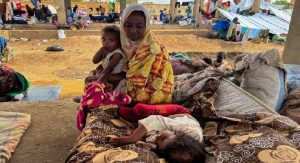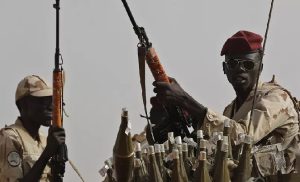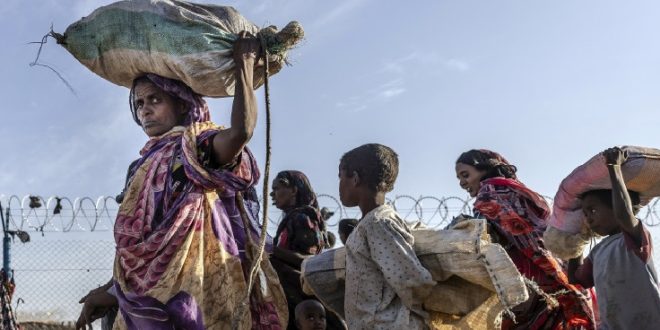30-12-2024
KHARTOUM: In Sudan, 20 months of armed conflict between the paramilitary Rapid Support Forces (RSF) and the Sudanese army (SAF) have killed at least 20,000 people and left some 25 million half of the country’s population suffering from severe hunger and in urgent need of humanitarian aid. Meanwhile, 14 million Sudanese have been displaced, with about 3.1 million seeking refuge outside the country, mainly in Chad, South Sudan, Uganda, and Egypt.
 As is often the case, children are bearing the brunt of this brutal war.
As is often the case, children are bearing the brunt of this brutal war.
According to medical organization Doctors Without Borders, known by its French initials MSF, approximately one in six of those treated at the Bashair Teaching Hospital in South Khartoum for war-related injuries, such as gunshot, shrapnel and blast wounds, between January and September 2024 were aged 15 or below.
The medical team revealed that they recently treated an 18-month-old baby, Riyad, who was hit by a stray bullet while napping in his family’s home. They said they managed to stabilize him but were unable to remove the bullet from his chest. Amid ongoing conflict and limited access to medical care, the future of Riyad, like thousands of other war-wounded, traumatized and orphaned children across the country, remains uncertain.
Sexual violence is also rife in Sudan’s conflict. Forces commanded by both the RSF and the SAF have committed rape and other acts of sexual and gender-based violence, revealed the UN Independent International Fact-Finding Mission for the Sudan in its report published in October. The report accused both sides of using rape as a weapon of war but said the RSF was behind the “large majority” of documented cases and was responsible for “sexual violence on a large scale”, including “gang rapes and abducting and detaining victims in conditions that amount to sexual slavery”.
Amid ongoing conflict, survivors of rape and other sexual violence struggle to access medical treatment, essential medication, and psychological support services.
 Many are left wounded, traumatized, and homeless.
Many are left wounded, traumatized, and homeless.
With war crimes and other atrocities committed against men, women and even children on a daily basis with impunity, Sudan’s conflict has come to represent the worst of humanity.
As the people of Sudan prepare to begin another year hungry, wounded and scared, the international community, and especially the African organizations allegedly committed to ensuring peace and stability in the region, have a responsibility to take meaningful action including direct intervention.
So far, efforts to put an end to the suffering of the Sudanese by mediating between the warring parties have all been fruitless.
Peace initiatives led by the African Union (AU), the Intergovernmental Authority on Development (IGAD), the United States, Egypt and Switzerland have all failed to secure a sustainable ceasefire, a comprehensive peace agreement or meaningful protections for the civilian population.
In May 2023, just one month into the conflict, the two warring sides appeared to have reached a pivotal agreement in Saudi Arabia. They signed the Jeddah Declaration of Commitment to Protect the Civilians of Sudan, agreeing to “distinguish at all times between civilians and combatants and between civilian objects and military targets”. As part of the agreement they also pledged to “refrain from any attack that may be expected to cause incidental civilian harm” and to “protect all public and private facilities, such as hospitals and water and electricity installations”.
The agreement was supposed to result in at least a weeklong ceasefire, but in the end could not stop atrocities against civilians, let alone the relentless fighting between SAF and RSF, even for 48 hours. (Int’l News Desk)
 Pressmediaofindia
Pressmediaofindia




